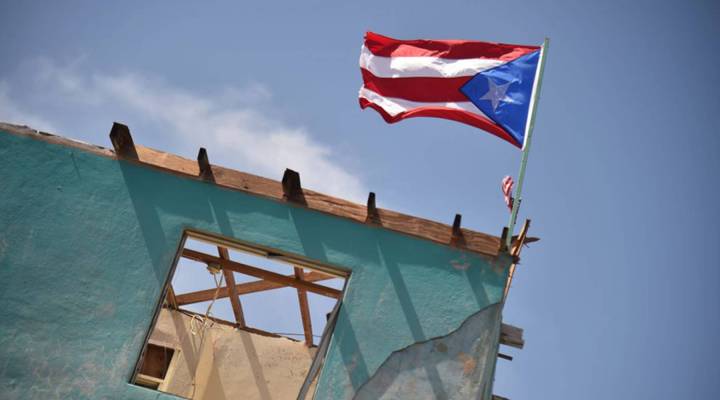
For older Puerto Ricans, limited housing is a barrier to mainland life post-Hurricane Maria
For older Puerto Ricans, limited housing is a barrier to mainland life post-Hurricane Maria

When Hurricane Maria flooded Andres Reyes’ home in Cidra, Puerto Rico, he stayed on the property for as long as he could. The island’s central mountainous region, where Reyes had lived for 37 years, had been badly hit. Reyes slept inside his home for one month as the water receded and, when he contracted a bacterial infection, he moved outside for two months.
“I would take my pillow, my blanket — my cousin gave me a little foam mattress,” he said. “I would roll it out, put it there and I would sleep in the car.”
Reyes, who’s 60 years old, was diagnosed with severe depression eight years ago and depends on Social Security disability benefits. After months of stress, he left Puerto Rico for Kissimmee, Florida.
He has been staying in a hotel room there since December. Reyes’ monthly check of $788 isn’t enough for him to secure an apartment. In this part of Florida, the median rent can hit about $1,100 a month.
Andres Reyes has been staying at the Ramada in downtown Kissimmee, Florida, since he evacuated Puerto Rico last December.
The Federal Emergency Management Agency said it will end its temporary housing assistance on June 30. The agency has temporarily housed more than 7,000 Puerto Rican families in hotels in 30 states and Puerto Rico since the program began in October. Of those, 973 individuals were 60 or older. As of June 5, that number had been reduced to 1,945 families and 270 individuals 60 or older. FEMA has spent $78.7 million on its transitional shelter program for Puerto Rican evacuees so far, reimbursing hotels in Kissimmee $129 a day per room.
Pastor Jose Nieves with First Kissimmee United Methodist Church has been helping evacuees.
“We have a number of elderly who are having a harder time being able to get ahead,” Nieves said.
His church, along with a network of United Methodist churches, have been helping evacuees by offering food, rental assistance and apartment placement. Some older evacuees have moved in with families. Others who can’t find relatives to stay with have medical needs and income limitations.
“The resources to help families with fixed income in Osceola County are limited because there was already a waiting list to help these families,” Nieves said.
FEMA was originally slated to end its temporary housing assistance program in January. Affordable housing in the region is limited. U.S. Rep. Darren Soto of Florida’s 9th District said older evacuees will require long-term assistance from the state, religious groups and nonprofits.
“It’s going to take our entire community to help folks,” Soto said.
There’s a lot happening in the world. Through it all, Marketplace is here for you.
You rely on Marketplace to break down the world’s events and tell you how it affects you in a fact-based, approachable way. We rely on your financial support to keep making that possible.
Your donation today powers the independent journalism that you rely on. For just $5/month, you can help sustain Marketplace so we can keep reporting on the things that matter to you.


















